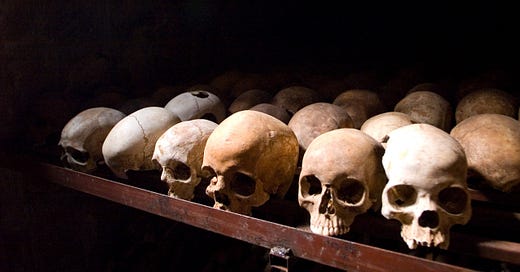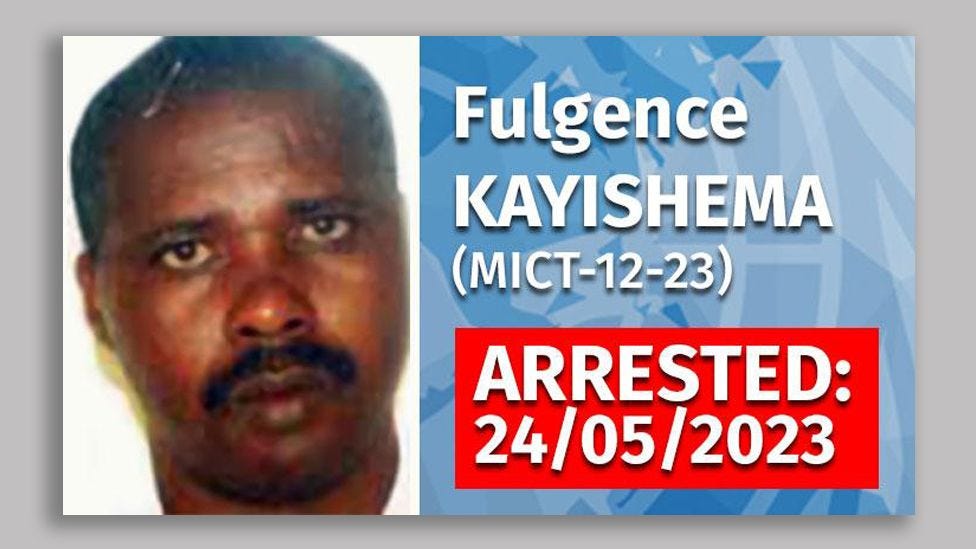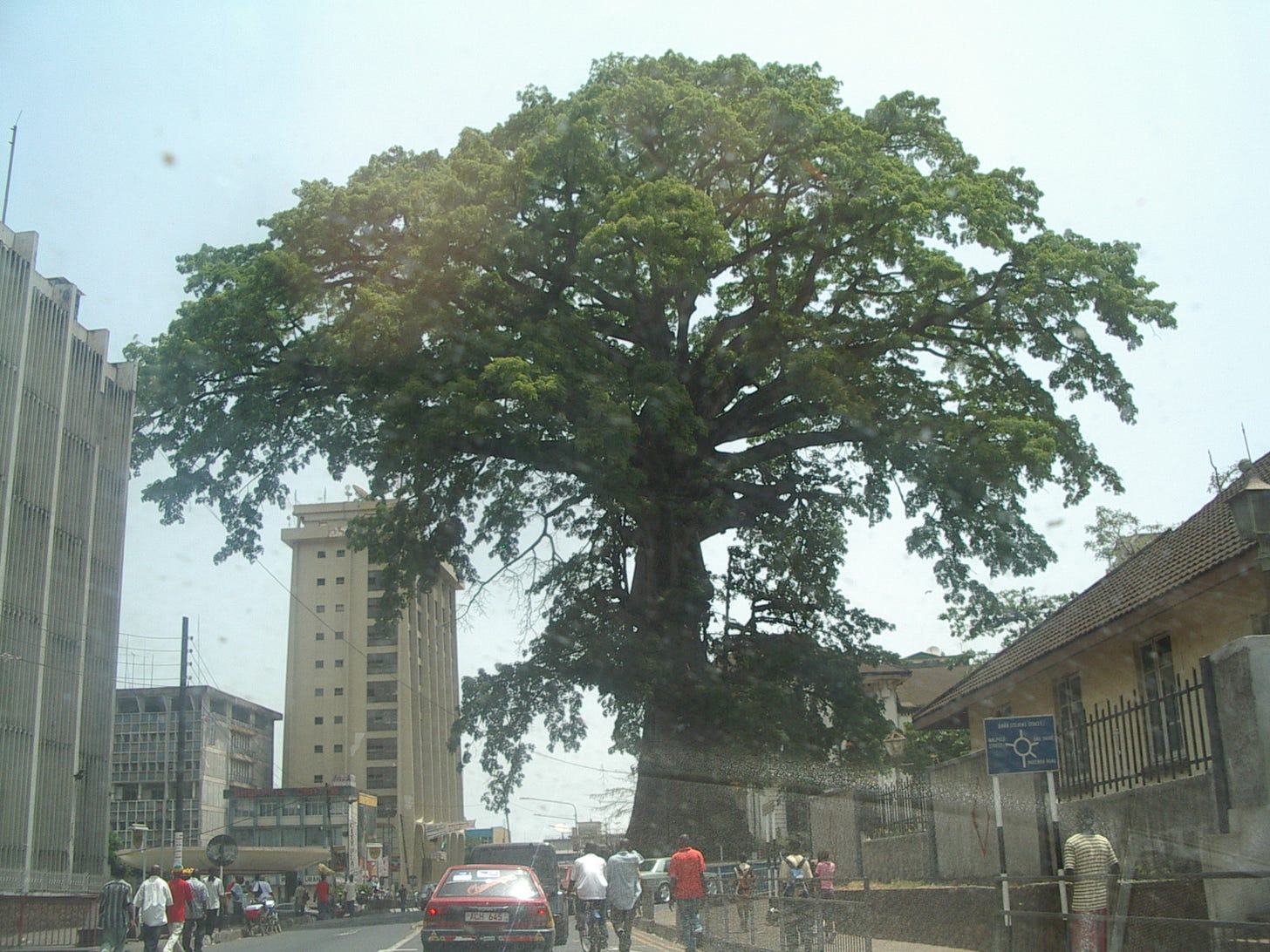🔅 Justice Intervenes: Rwanda Genocide Fugitive Arrested
Plus: A Growing Middle Class = More Comfortable Public Transport, The Great Cotton Tree of Freetown Comes Down, South Africans are Taking the Grid into Their Own Hands, And much more...
Photo of the day: Île de Gorée, Dakar, Senegal

Markets — Year to Dte:
🟢 Nigerian SE: 52,973.88 (+3.36%)
🟢 Johannesburg SE: 76,589.54 (+4.85%)
🔴 Ghana SE: 2,519.92 (-3.11%)
🔴 Nairobi SE: 97.93 (-23.17%)
🟢 US S&P 500: 4,205.45 (+9.97%)
🟢 Shanghai Composite: 3,212.50 (+3.08%)
South Africa's Rates Go Up, Rand Goes Down | South Africa’s central bank has just upped the ante with their benchmark interest rate, now at a 14-year high. The move is part of the country’s effort to bring inflation back in check—but with the rand taking a nosedive after the announcement, it looks like the move could have some unintended consequences. Governor Lesetja Kganyago said the hike was a “unanimous decision” by the bank’s monetary policy committee, aimed at restoring confidence that inflation could be reined in “sustainably over time”. The rate hike comes on the heels of persistent price pressures and record blackouts—which are costing the country more than $50m in lost output each day.
*Data accurate as of the close of markets across the continent
RWANDA GENOCIDE
Justice Intervenes: Rwanda Genocide Fugitive Arrested
It's been 27 years since the Rwandan genocide, in which nearly 800,000 Tutsis and moderate Hutus were killed.
But only last week is when one of the four remaining fugitives of the genocide has been caught: Fulgence Kayishema was arrested in South Africa on Wednesday.
What is Kayishema accused of?
He was charged in 2001 over an incident during which more than 2,000 Tutsi men, women, and children were killed inside a Catholic church where they had sought refuge.
He had planned and executed the massacre, and even attempted to burn down the church. But then when that failed, he bulldozed it, killing everyone inside.
He has been on the run since the end of the genocide, and was apprehended at a grape farm in Western Cape province, under the false name of Donatien Nibashumba. An elite unit of South African police caught him.
Right now, he's in custody and will appear in the Cape Town Magistrate Court on Friday for his first appearance, pending extradition to Rwanda.
What will happen to him?
Once in Rwanda, he'll face trial.
The Tanzania-based ICTR, which closed down in 2015, sentenced more than 60 ringleaders of the genocide, including three over the Notre Dame de la Visitation church massacre. The church's priest, Athanase Seromba, was sentenced to life in prison in 2008.
It's a bittersweet moment for the victims of the genocide, but hopefully, this arrest will help bring justice.
Enjoying Baobab? Share us with your circle! Thoughts? Hit reply — we're listening!
OTHER HEADLINES
Across the Continent

🚐 A Growing Middle Class = More Comfortable Public Transport | In Africa, public transport often tests even the most patient traveller’s limits. Delays, crammed minibuses, and paid stooges making the buses look full—it’s enough to make you want to scream. But as incomes in the continent rise, some people are finally starting to demand better public transport. The result? More and more bus companies are launching “executive” services that guarantee on-time departures, comfy seats, and other perks that make travelling a little less painful. It’s a sign that Africa’s middle class is growing and, even better, that they’re not afraid to demand a little comfort in their daily lives. Case in point? The Economist's case study of Uganda's transport system.
🇸🇱 The Great Cotton Tree of Freetown Comes Down | The symbol of freedom and liberty in Sierra Leone’s capital, Freetown, was brought down by a heavy storm this week. President Julius Maada Bio called it a “great loss to the nation”—and we can understand why. The hundreds-year-old tree was the oldest of its kind in the country and had a special place in Sierra Leone’s history: It’s said to be the site where formerly enslaved people founded the city. The tree was even featured on banknotes.
🔅 Taking the Grid into Their Own Hands | South Africans are taking matters into their own hands as electricity rationing hits a new record. They’re getting their wallets out and buying solar panels, inverters, and lithium-ion batteries in droves. To the tune of R3.6 billion ($200 million) for solar panels in the first quarter of this year, and R10.5 billion ($650 million) for inverters in 2022. Why? South Africa has been in a state of crisis, with load-shedding from Stage 1 (1,000 MW of load) to Stage 8 (8,000 MW of load) and 12-hour blackouts. According to the South African Reserve Bank, these Stage 8 blackouts cost the country R900 million ($50 million) a day. But it looks like South Africans are taking it in stride. They’re investing in renewable energy solutions and potentially creating new opportunities for locally-made products in the process. In the first three months of this year, over 2,400 MW of projects have been registered by private firms looking to generate their own power. Solar energy is giving them a chance to be independent from the grid.

FOOD FOR THOUGHT
Proverb of the Day
“Even the king of the forest, the lion, protects himself against flies.”
— Ghanaian Proverb.
Are we hitting the mark?
Enjoying Baobab's updates? Spread the joy and share us with friends and colleagues — we'd be thrilled to have them join!
Feedback or thoughts? Just hit reply. We're all ears!






